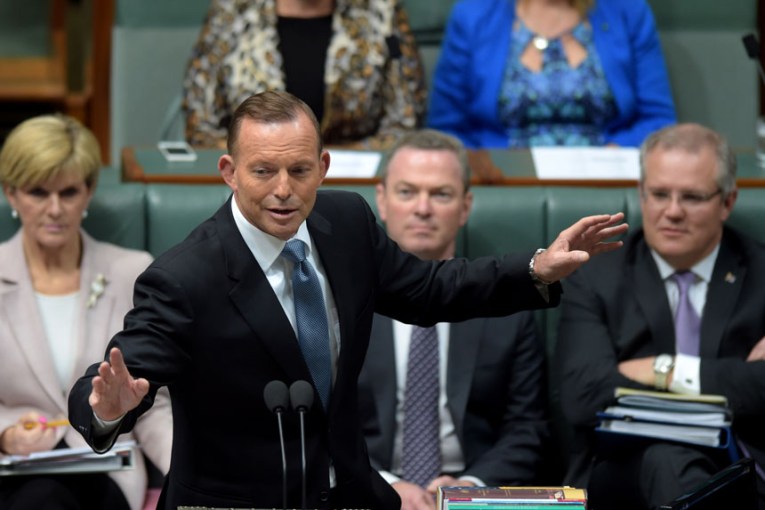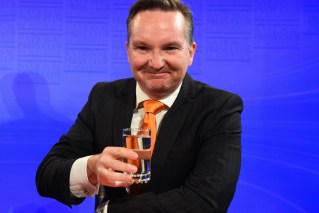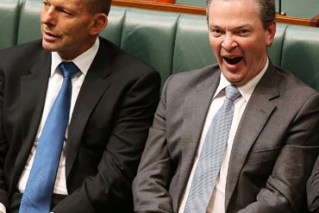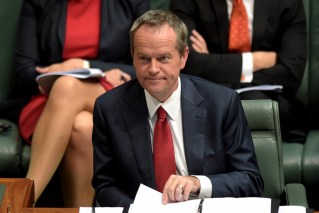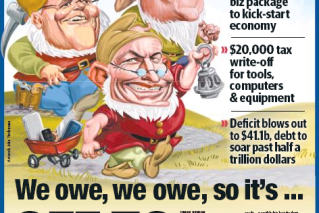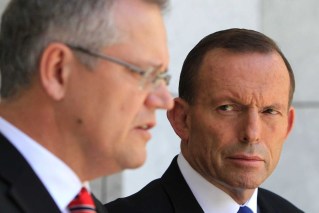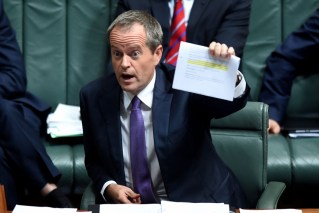Chris Bowen’s Robin Hood act needs work

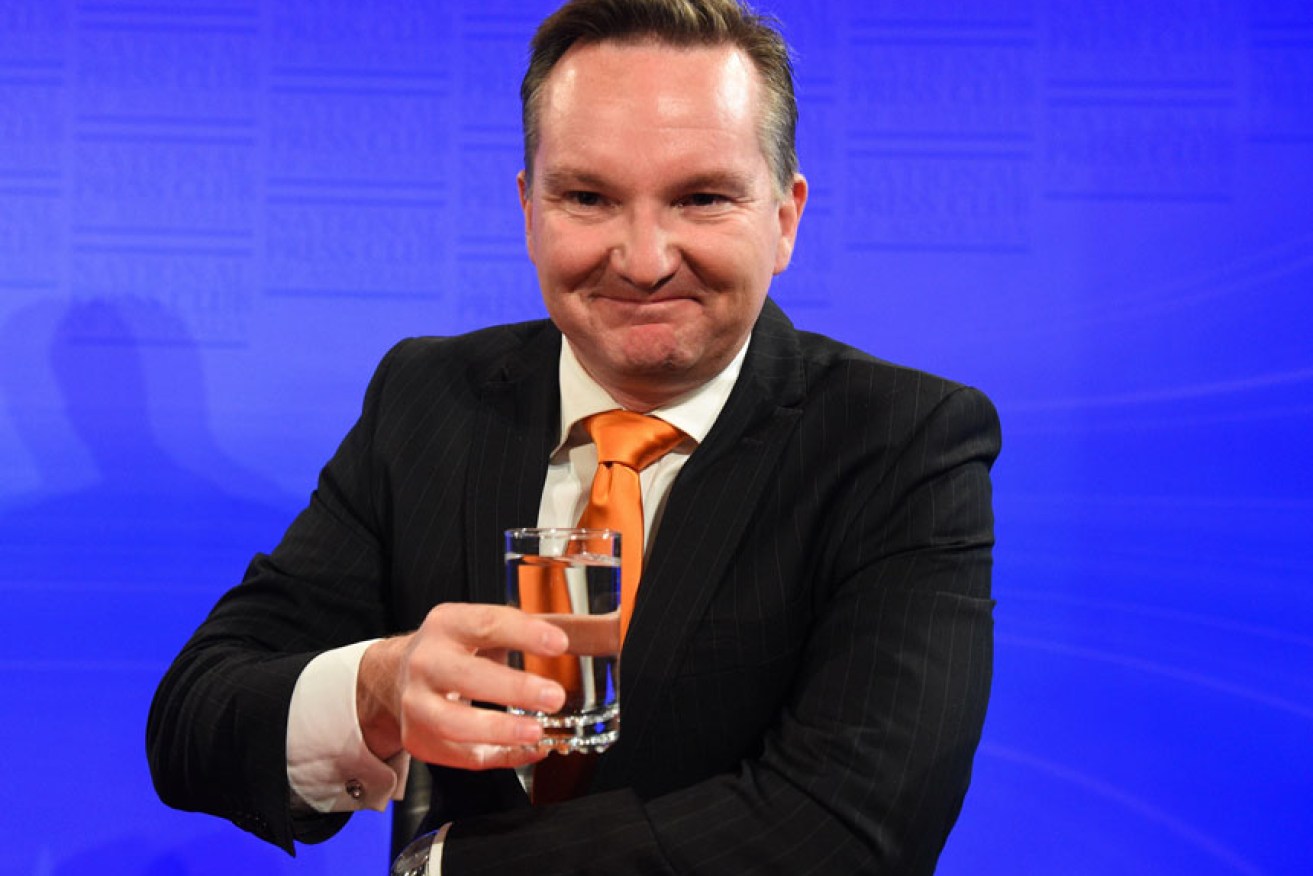
AAP
Shadow Treasurer Chris Bowen’s assertion that Labor has “got the balance right” with its new superannuation tax policy is a political rather than an economic argument.
Speaking at the National Press Club on Wednesday, Mr Bowen explained how Labor would take back $14 billion of tax concessions over the next 10 years, through two measures.
Firstly, when Australians turn 60 years old, the 15 per cent tax that is levied on earnings within their super account is reduced to zero. Labor plans to leave that at zero up to $75,000 in earnings, but to tax earnings at 15 per cent for every dollar above that threshold.
• Chris Bowen prepared for ‘super election’
• Cabinet divided over iron ore price inquiry
• Parental leave battle as election looms
Secondly, Australians currently earning up to $300,000 per annum pay 15 cents tax on every dollar put into their super account, but on contributions from earnings above that level pay 30 cents in the dollar. Labor’s change is to lower that threshold to $250,000.
Putting those two measures together produces the cumulative ‘structural saving’ of $14 billion over 10 years – in Labor’s view, the right balance.
But there are a couple of reasons why that ‘balance’ is more political than economic.
As Mr Bowen’s own figures show, superannuation tax concessions are set to reach $50 billion a year by the last year of the federal budget’s forward estimates – that is, in 2018/19.
And yep, that’s slightly more than the government’s entire spending on pensions in that year. The logic of structuring a budget this way is … umm … well look, there is no logic to it at all.
Under the current system, the more money a worker earns, the more they can put into their super account. The more they put into their super account, the more they’ll get a discount on the tax they would have paid if that money had been spent elsewhere.
And the larger the tax discount such a worker receives, the more other, less affluent workers, will have to pay to keep funding government services.
That’s about as topsy-turvy as things could get in what is supposed to be a progressive tax system.
In spirit, Labor’s new policy makes the system slightly more progressive, with ‘slightly’ being the operative word. The nature of ‘structural saves’, as the wonks call them, is that they start off small and get bigger over time.
The impact on the budget in the near-term from this reform is very small (and remember, it’ll only become law if Labor is elected to govern in 2016).

Not so friendly handshake: Treasurer Joe Hockey (L) and Chris Bowen. Photo: AAP
For one thing, it would not kick in until July 2017, and its first year would only save about $800 million. With the next four budget deficits forecast to be $41bn, $35bn, $26bn and $14bn, that’s not going to make much of a dent.
So let’s look again at whether the balance is right – in the current financial year we’re paying about $40 billion a year in pensions, giving $30 billion back to super savers and the budget is $40 billion in the red. Net federal debt is due to peak in 2016/17 at 18 per cent of GDP or $313 billion.
From an economic perspective, then, Labor’s policy should go further. Labor has carefully calibrated the reform so that it would impact between 110,000 and 300,000 wealthy people over time. It therefore gets to play Robin Hood, giving the money back to the vast bulk of taxpayers who will never get close to holding enough in super to be affected.
What stops it going further is straight politics. Prime Minister Tony Abbott has already started telling voters that the money in their super account that comes courtesy of other taxpayers – that is, the super tax concessions – is their own money, not something Chris Bowen should be allowed to plunder.
By contrast, the pensions that those pesky pensioners keep asking for is somehow a grave imposition on poor taxpayers.
That’s loony. As economist Leith van Onselen explained in a recent article: “Tony Abbott seems to honestly believe that tax loopholes are good and virtuous, whereas direct transfers are not.”
If Labor is to resist Mr Abbott’s attacks on this policy, it needs to make clear that somebody pays for super tax concessions, every bit as much as somebody pays for the pension.
It also needs to make clear that the purported aim of super tax concessions – to incentivise Australians to get off the pension altogether – is simply not what they are mostly used for.
The bulk of the tax giveaway goes to people who end up well above the asset or income test for receiving a pension. It is largely a tool for estate planning and tax minimisation.
Those points, when put together, are a complex package to sell. That’s why Labor has found a ‘balance’ that is politically sellable – but one that won’t make a great deal of difference to the federal budget.
